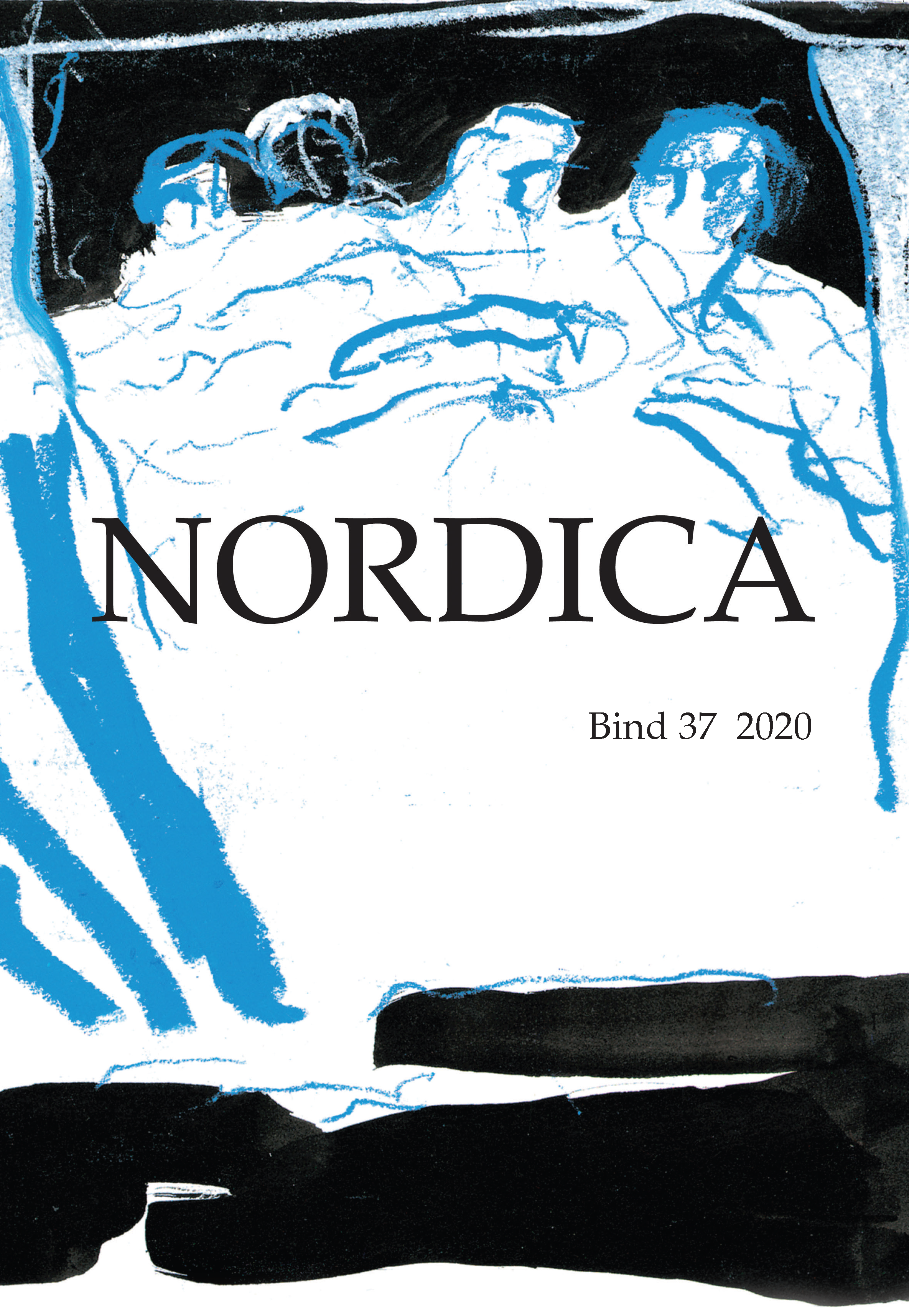Guds død i H.C. Andersens "Skyggen"
Nøgleord:
idealer, essentialisme, nihilisme, det ualmindelige væsenResumé
Når den lærde mand skriver ”om hvad der var Sandt i Verden, og om hvad der var Godt og hvad der var Smukt”, siden ”om det Sande og det Gode og det Skjønne”, er formuleringerne ikke synonyme. Det er logikkens skelnen mellem genstande (omfang) og begrebsligt indhold (intension). Denne forskel røbes i scenen, hvor prinsessen eksaminerer den lærde, der er filosof, i emner, der er sande ifølge videnskaberne. Jeg påviser, at skyggen bliver til Skyggen inden for en platonisk udlagt lagdeling af tilværelsen, kendt fra ”Den lille Havfrue”, idet den stiger op fra den lavere til den højere verden. I ”poesiens forgemak” bliver skyggen til et ”menneske”, og den verden, der herefter åbner sig for Skyggen, er identisk med menneskenes verden, men uden idealerne, kun med de ting, som man regner for rigtige, effektive og pæne. Med Heidegger tolker jeg idealernes destruktion som egoets ”opstand”. Ved at afklare den åndhistoriske reception af teksten viser jeg, hvorledes ”en slags tusmørke” i forgemakket er afgørende. Det et stedet for tings forvandling til deres modsætning. Og fordi Skyggen er skygge, er netop den egnet til at foretage en sådan omvurdering.
Downloads
Publiceret
Nummer
Sektion
Licens
© Redaktionen, forfatterne og Syddansk Universitetsforlag
NORDICA følger danske retningslinjer for ophavsret.
Artikler og anmeldelser, der sendes til redaktionen, må ikke tidligere være publiceret og må heller ikke være sendt til et andet tidsskrift med henblik på at komme i betragtning til at blive publiceret.
Du må downloade, printe, distribuere i dit universitets Learning Management System og linke til artikler/anmeldelser.
Du må ikke genudgive artikler/anmeldelser i andre tidsskrifter eller hos andre forlag hverken gratis eller kommercielt, medmindre rettighedshaverne giver tilladelse til det.
Artikler og anmeldelser må gerne uploades i PURE eller andet institutionelt repositorium i den accepterede, fagfællebedømte version, når det er uploadet på tidsskrift.dk – dvs. 12 mdr. efter publicering i Nordica på Syddansk Universitetsforlag og gerne med en reference hertil. Du kan også linke til tidsskrift.dk.
Open Access
NORDICA tilbyder Open Access til tidsskriftets indhold på baggrund af princippet om, at gratis offentlig adgang til forskning understøtter en større global udveksling af viden.

